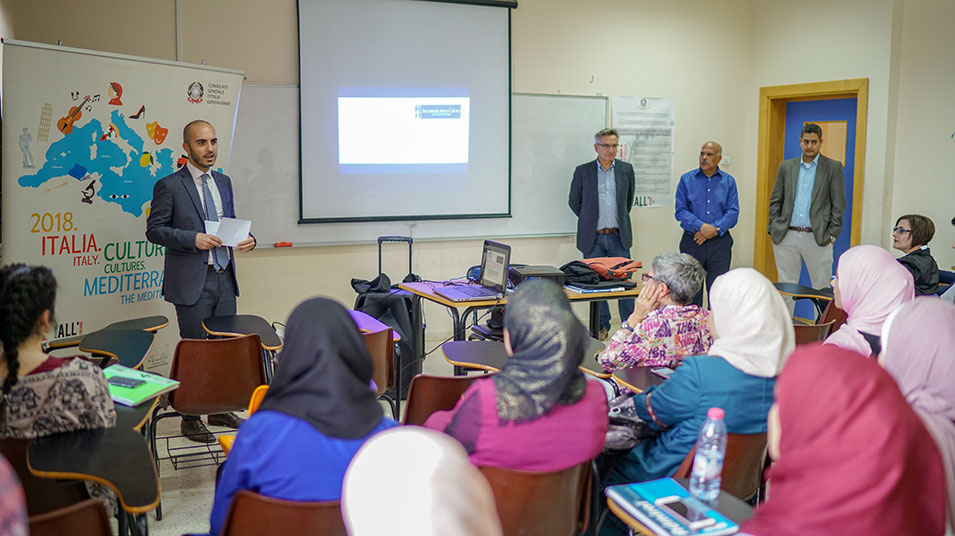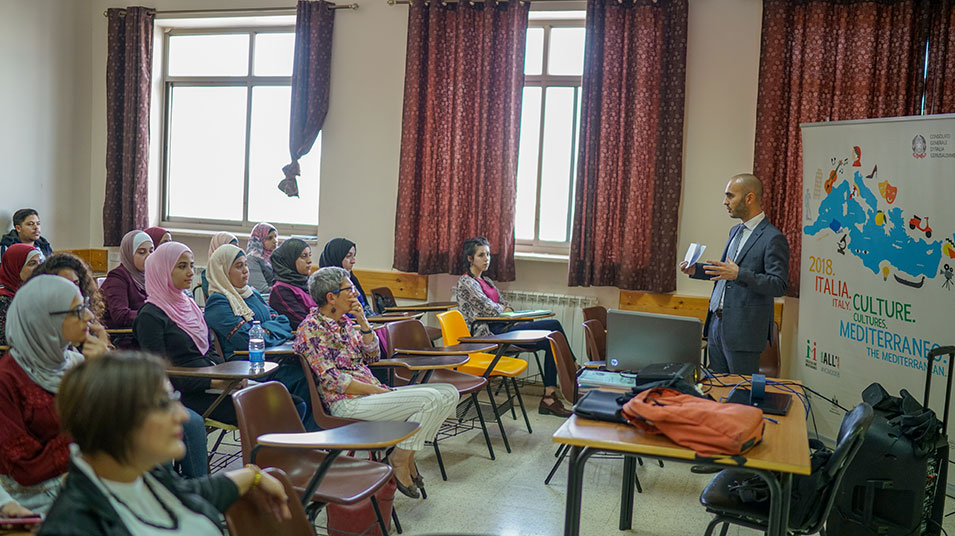Roberto Cirelli, Italian instructor, explains how language changes in the age of information
As part of the 18th Week of the Italian Language, the Department of Languages and Translation at Birzeit University held a lecture on Tuesday, October 23, 2018, on the changes and developments that the digital age has introduced to the Italian language.
The lecture, led by Roberto Cirelli, an instructor who teaches Italian communication at Birzeit University, was attended by Federico Dimonopoli, the Italian consul in Jerusalem; Amir Khalil, the external academic relations officer at Birzeit University; Adnan Abuayyash, chair of the Department of Languages and Translation; and a number of faculty members and students.
Dimonopoli said that he was proud seeing activities related to the Week of the Italian Language, an event held worldwide to promote Italian language and culture, in Palestine, and noted that the current theme of the event is “Italian and the web, social networks for the Italian language,” while the previous year connected Italian to the world of film and cinema.
The consul also mentioned the scholarships and opportunities provided by the Italian government for Palestinian students to pursue higher education in Italy. Along similar lines, Khalil gave a brief overview of the Erasmus+ student exchange program, which offers students a chance to study for a semester at partner universities.
In the lecture, Cirelli traced the changes that occurred in the Italian language, beginning with the introduction of TV in the 1950s, which led to a semi-standardization of the Italian language and a gradual elimination of dialects.
“While most changes in the Italian language appeared within the last 50 years, the language itself is in a state of constant change, and is constantly affected by the cultural, social, and technological shifts that occur,” said Cirelli, who went on to address the developments that technological advancements introduced to the Italian language.
Such changes include the introduction of new terms - mostly related to technology - that are mixed with English, shortening words and phrases to fit in a text message, and disregarding punctuation to keep up with the pace of an instant-messaging conversation.
“Writing has changed. Before, people used to write letters which would take days and weeks to arrive. Now, however, the conversation is as instant as a face-to-face talk, which means that written Italian has taken on some of the attributes of oral Italian,” remarked Cirelli.
At the end of the lecture, a short excerpt of the film “Passione: A Musical Adventure” was screened. The movie explores the culture and its unique musical setting of Naples, Italy.








